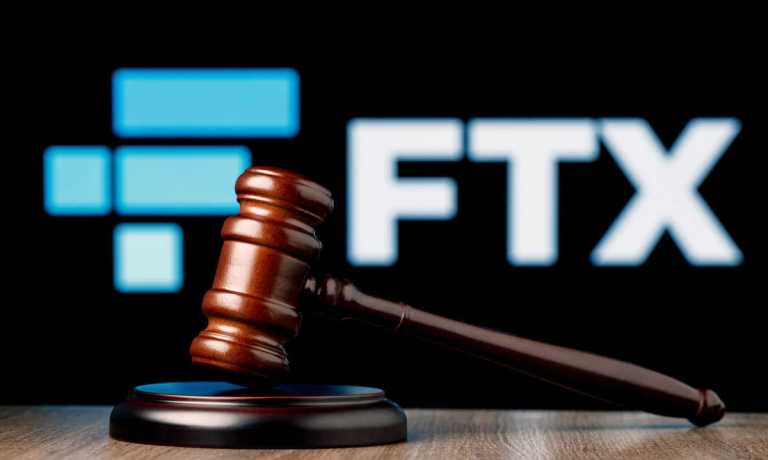FTX United States Extradition Remains Unresolved With Bankman-Fried Still Imprisoned

The FTX United States extradition situation has hit an unexpected snag.
Sam Bankman-Fried (SBF), the one-time multibillionaire and disgraced FTX founder, appeared Monday morning (Dec. 19) before an emergency hearing of the Bahamas Magistrate Court. It was SBF’s first time back in court since his earlier request for a bail of just $250,000 and a notably lenient supervised home release was denied.
The hearing, which saw SBF’s lawyer, Jerome Roberts, tell the court he was not aware of his client’s plans, was adjourned with no ruling being given, meaning the crypto fraudster isn’t being extradited to the U.S. just yet.
There was reportedly confusion from the start, with SBF’s lawyer asking the judge why the emergency hearing was being held.
“Things are moving prematurely and without any involvement from me,” Roberts said.
Roberts has not immediately replied to a request by PYMNTS for comment. His client reportedly wishes to read his indictment before making a decision regarding extradition. SBF has apparently only seen the affidavit laying out the charges against him, as reported by Reuters.
SBF’s original extradition court trial was set for Feb. 8, although there is the potential one will be called for sooner given the chaos of Monday’s hearing.
A Change of Heart
PYMNTS relayed over the weekend that the self-styled wunderkind behind the FTX crypto exchange’s rapid implosion, who is accused of defrauding millions of customers to the tune of several billion dollars, had reversed course and decided not to fight his extradition from the Bahamas to the U.S.
These plans apparently caught SBF’s own legal team off guard, despite being widely reported.
SBF was arrested in the Bahamas the night before he was set to testify in front of lawmakers during a Dec. 13 House Financial Services Committee hearing on his company’s collapse, an action that left the committee chairwoman, Maxine Waters, “surprised” and “disappointed,” according to her public statement.
He faces eight interrelated criminal counts levied against him by the U.S. Department of Justice (DOJ) that range from wire fraud to various conspiracy counts.
While SBF is presently the only senior FTX executive being criminally charged, the federal indictment stated that he conspired with others both “known and unknown.”
He also faces additional civil suits filed by the Securities and Exchange Commission (SEC) and the Commodity Futures Trading Commission (CFTC) that allege FTX’s crypto empire was entirely fraudulent “from the start.”
The former CEO has been locked up in the infamous Bahamian prison, Fox Hill, for the past week at the behest of U.S. prosecutors.
Fox Hill prison was described by a U.S. State Department report as overcrowded and rat-infested, with inmates given buckets for toilets. SBF is being held in Fox Hill’s medical ward, considered a cushier environment than the rest of the prison with real beds and air conditioning.
SBF’s parents reportedly asked the island jail whether vegan options could be made available to their son while he awaits his fate. As covered by The Washington Post Saturday (Dec. 17), they were, somewhat surprisingly, successful in their entreaty.
Still, a jail cell is a jail cell, and imprisonment remains a far cry from the billionaire’s former oceanfront penthouse and high-flying, celebrity studded previous life.
In the Blink of an Eye
The collapse of SBF and his FTX crypto empire remains one of the greatest implosions of not just wealth but also credibility in recent times.
His former company rode the crypto wave to become, at one point, the third-largest cryptocurrency exchange in the world. Amid his ascent, SBF was being fawningly portrayed as the next J.P. Morgan, and his face and unkempt black hairstyle were plastered across magazine covers and television sets.
It took just 48 hours for the reportedly highly overleveraged exchange to come crashing down, evaporating the funds of millions of customers.
The subsequent fallout and media scrutiny of crypto’s post-FTX landscape has made regulating the volatile industry a top priority for U.S. lawmakers, who previously had taken a hands-off approach with regard to the emergent industry. Complicating matters is the fact that many of the major players are incorporated off shore and out of reach.
In numerous media appearances following his company’s collapse, the one-time mogul, now better known as inmate No. 14372, has repeatedly denied committing fraud — or knowingly breaking the law. He instead blamed internal mismanagement and poor accounting, as well as risk management failures.
For all PYMNTS crypto coverage, subscribe to the daily Crypto Newsletter.